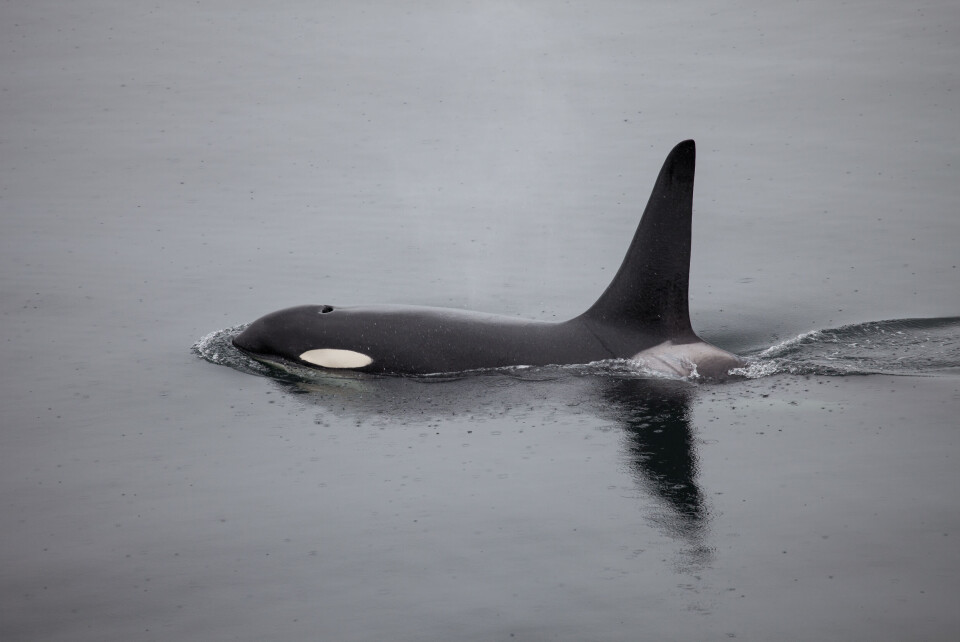-
American celebrity jeweller robbed of ‘more than €1m’ at French Riviera Airbnb
Jewellery and cash stolen from rental property where Chris Aire was staying
-
New 2026 civic tests in France: 50 example questions in French
Candidates must score 80% on tests to pass
-
France farmer protests: 100 tractors in Paris, roadblocks remain elsewhere
Farmers continue to blockade a number of routes ahead of Mercosur vote on Friday
Update: sick orca whale trapped in the Seine found dead
Experts tried to steer the animal to safety over the weekend but had decided that its declining health made euthanasia the ‘only possible alternative’

[Article updated on May 30 at 13:40]
The orca whale trapped in the Seine river has been found dead this morning (May 30).
"We are currently with [the whale] to prevent its body from being hit by a ship, which would compromise an [eventual] autopsy," said wildlife protection organisation Sea Shepherd on Twitter. "We are waiting for a mobilised government team to come and recover it."
Nous avons malheureusement retrouvé le cadavre de l'orque ce matin à 11h48. Nous sommes actuellement avec elle pour empêcher que son corps ne soit percuté par un navire, ce qui compromettrait l'autopsie. Nous attendons l'équipe mobilisée par l’État pour la récupérer. pic.twitter.com/kHunMaxGyt
— Sea Shepherd France (@SeaShepherdFran) May 30, 2022
The French authorities had announced last night (May 29) that they intended to euthanise the orca after attempts to steer it to safety were unsuccessful.
Read more: Efforts underway to guide Orca whale in Seine river to sea using sound
The Seine-Maritime prefecture confirmed the plans and said it was necessary to end the animal’s suffering after its health has worsened significantly over the past few weeks.
The whale, which was 4-5 metres long and weighed more than a tonne, was stuck between Rouen and Le Havre despite attempts to guide it towards the sea using sound waves.
In a statement, the prefecture said: “The group of experts has concluded unanimously that the only possible solution is to euthanise the animal.”
A decision on exactly how to do this had not yet been made, but there were regulations surrounding the practice, given that whales are a protected species.
The sound waves operation began on Saturday, May 28, but it showed “a lack of alertness, incoherent reactions to sound stimuli and erratic and disoriented behaviour of the orca", the prefecture said.
It added: "The sound recordings also revealed vocalisations that could be considered distress calls. Attempts to bring the whale back to the sea having failed, and in order not to further aggravate its stress level, the decision was taken to stop the intervention in the early evening.”
Experts, including Charlotte Curé, researcher in bioacoustics at the Centre d'études et d'expertise sur les risques, l'environnement, la mobilité et l'aménagement (Cerema), who directed the sound waves operation, said that the animal’s behaviour suggested that it is very unwell.
Analysis of images of the animal shows that it was suffering from the skin disease mucormycosis, which appeared to be at "a very advanced stage, to the point where it is causing significant suffering to the animal", with "deep ulcerations…and necrotic lesions".
Mucormycosis affects water mammals around the world, and can even “enter the bloodstream to affect the kidneys, lungs, heart and brain”, said Ms Curé. It is not clear if the whale contracted the illness before entering the Seine, but the freshwater environment will have made the condition worse, she said.
The prefecture said that the risk to humans is very low, but has continued to ban swimming or fishing from any areas of water close to the whale. Drinking water does not come from the area, it added.
Related articles
Video: Orca whale seen in Seine river but authorities cannot intervene
Normandy fisherman films orca whale 30kms off Channel coastline
























